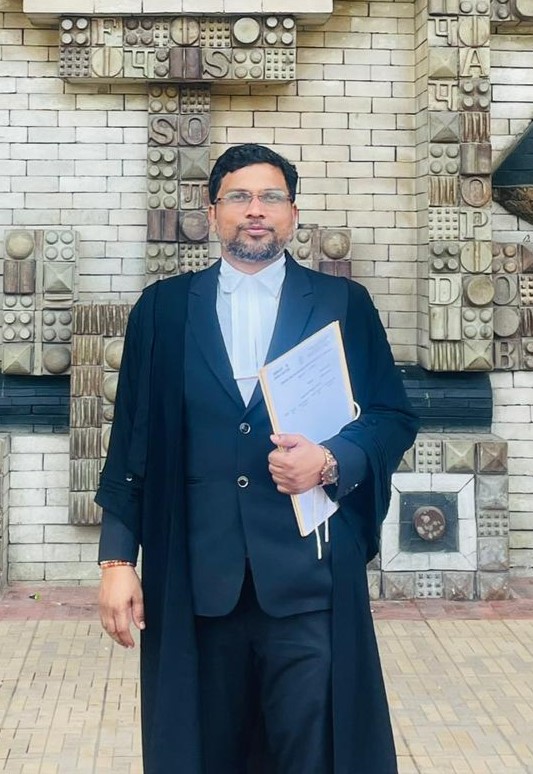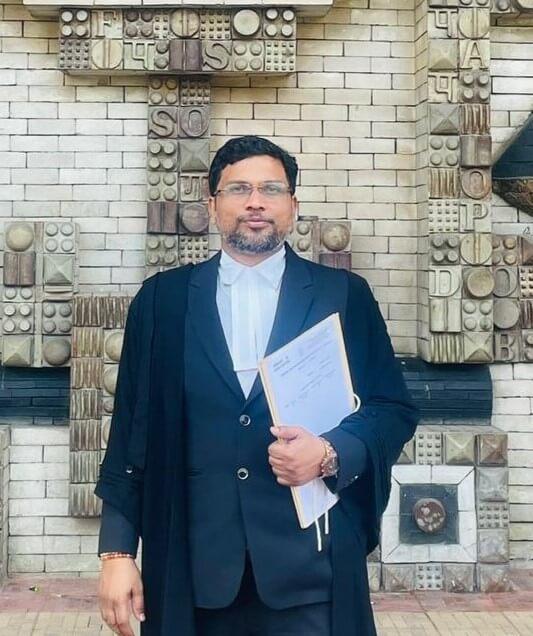Understanding Matrimonial Disputes: Causes, Legal Remedies, and Resolution Strategies Matrimonial disputes are conflicts that arise between spouses due to differences in opinions, values, expectations, or circumstances. These disputes can have significant emotional, financial, and social impacts on the individuals involved, as well as on their families. Understanding the causes, legal remedies, and strategies for resolution can help couples navigate these challenging situations effectively. Common Causes of Matrimonial Disputes Communication Issues: Lack of effective communication often leads to misunderstandings, resentment, and emotional distance. Financial Disagreements: Differences in financial priorities, spending habits, and financial responsibilities can create tension. Infidelity: Extramarital affairs and breaches of trust can severely strain a marriage. Cultural and Religious Differences: Divergent cultural or religious beliefs may lead to conflicts in lifestyle and parenting decisions. Domestic Violence: Physical, emotional, or psychological abuse can lead to severe marital discord. Lack of Compatibility: Differences in personality, values, or life goals can create ongoing conflicts. Family Interference: External influences, particularly from in-laws, can contribute to disagreements. Parenting Conflicts: Differing views on child-rearing and discipline often result in disputes. Legal Remedies for Matrimonial Disputes Matrimonial disputes can often lead to legal proceedings. Some of the common legal remedies include: Divorce: A legal dissolution of marriage, which can be contested or mutual. Judicial Separation: Allows couples to live apart without terminating the marriage. Mediation and Conciliation: Courts often recommend mediation to help couples resolve their issues amicably. Maintenance and Alimony: Financial support awarded to a spouse based on financial needs and capabilities. Custody of Children: Courts decide on the custody arrangements based on the welfare of the child. Protection Orders: In cases of domestic violence, protective measures can be sought under relevant laws. Property Settlement: Division of assets and liabilities between the spouses. Resolution Strategies for Matrimonial Disputes Open Communication: Honest and transparent dialogue can help address misunderstandings and rebuild trust. Counseling and Therapy: Professional counseling can provide tools to improve relationships and resolve conflicts. Legal Advice: Seeking professional legal guidance ensures rights and obligations are protected. Compromise and Negotiation: Willingness to compromise can lead to mutually beneficial outcomes. Avoiding Blame: Focusing on problem-solving rather than assigning blame can facilitate a resolution. Support Networks: Seeking support from friends, family, or support groups can provide emotional relief. Conclusion Matrimonial disputes are challenging but can be effectively managed with the right approach. Whether through communication, counseling, or legal recourse, understanding the available options can help individuals make informed decisions and work towards a positive resolution.
Divorce Lawyer in Delhi
Divorce Rules in India: Everything You Need to Know Marriage is a blessing. A successful marriage means falling in love with the same person many times. But sometimes this marriage does not work and turns into a divorce matter. But the divorce process in India takes work. This is a very complex place where one needs to understand the legal framework. India is a first country, many religious people stay here, and every reason has different laws. The divorce process involves legal and emotional steps That depend on the documents and the mental issues of both parties. Sometimes the divorce process is also held outside of the court and the lawyer can ensure that all the work is done under the legal process. So the environment of a lawyer in the divert process is very important and this blog will cover the key specs of divorce rules in India. Understanding Personal Laws As I mention earlier India is a country of different religions. So the divorce process also works differently for every religion. Some of the personal laws are: 1. Hindu Law Divorce among Hindus, including Buddhists, Jains, and Sikhs, is governed by the Hindu Marriage Act, of 1955. This act allows the Hindus to grant the divorce and also helps to get the negotiations. 2. Muslim Law Muslim divorce is based on Islamic principles and is governed by The Dissolution of Muslim Marriages Act, 1939 and customary practices. This also involves several factors like the Talak or the Khula and the mutual agreements. 3. Christian Law For Christians, the Indian Divorce Act, of 1869, is applied to them. This act also involves getting the result of adultery, cruelty, desertion, and other mental and physical abuse. 4. Secular Law This comes under the Special Marriage Act, of 1954. This act allows the individual to take their divorce when the two parties are from different religions. This law ensures a safe passage for both parties. Procedure for Divorce The divorce process is complex and one needs to understand some steps for going to court. The divorce process in India generally involves the following steps: 1. Filing the Petition A divorce petition is needed to be filed in the family court. The petition must have the requirements and the legal notices to grant the divorce. This needed to be written in a clear form. 2. Sending Notice The opposition party will have the divorce notice. This document needs to also mention the details of the divorce and it also needs to pursue the clear intention of the divorce. 3. Response by the Respondent The respondent’s agreement is also important for the divorce. If the respondent does not want to sign on the papers then this will come under the negotiation process. At that time that trial will go for both the parties. 4. Reconciliation Period The code will decide on a reconciliation process. This process will also legal actions like both the parties staying separately and joining the counselling to dissolve the marriage. 5. Evidence and Arguments Both parties need to present evidence and arguments to support their claims. The documents should be relevant to the case and these documents will have to clear the intentions of the divorce. After the documents are verified and the arguments, the court will give the final judgement. This judgment will also involve the monetary or financial disbursement. Why Choose Us So understanding the legal work and filing the petitions is not easy work. A lawyer can ensure that all the legal work is favours for the client. We are the Best Lawyers in Delhi and allow us to handle your divorce case. Our experienced team can handle the legal work and set you free. Please feel free to have a deal with us.
Best Divorce Lawyer in Delhi
Navigating Divorce Cases: The Role of a Divorce Lawyer Divorce is a significant life event, often marked by emotional challenges and legal complexities. A skilled divorce lawyer plays a critical role in guiding clients through the process, ensuring their rights are protected, and achieving a fair resolution. This article explores key aspects of divorce cases and the importance of legal representation. Understanding Divorce Cases Divorce cases are legal proceedings to dissolve a marriage. They often involve the division of marital assets, child custody and support arrangements, alimony, and other related matters. Each divorce case is unique, influenced by factors such as the length of the marriage, the financial situation of both parties, and the presence of children. Divorces can be categorized into two main types: Key Legal Issues in Divorce Cases The Role of a Divorce Lawyer A divorce lawyer provides both legal and emotional support throughout the process. Their responsibilities include: Choosing the Right Divorce Lawyer Selecting the right lawyer is crucial to the outcome of your case. Consider the following: Final Thoughts Divorce is often a challenging journey, but having the right legal representation can ease the burden and protect your interests. A divorce lawyer serves as both a legal advocate and a guide, helping you navigate the complexities of the process with confidence and clarity. Whether you’re embarking on an uncontested divorce or facing a contested battle, their expertise is invaluable in achieving a fair and sustainable resolution.
Best Divorce Lawyer in Delhi
Divorce can be one of the most challenging and emotional experiences in a person’s life. It’s a legal process that dissolves a marriage and addresses various issues, such as asset division, child custody, alimony, and more. Understanding the divorce process can help individuals navigate this difficult time more effectively. This article provides a comprehensive overview of divorce cases, the types of divorces, the legal process, and key factors to consider. Types of Divorce Divorce cases can vary greatly depending on the circumstances of the couple. Here are the most common types: The Divorce Process The divorce process can be complex and varies by jurisdiction. However, the following steps provide a general overview: Key Issues in Divorce Cases Divorce cases often involve several critical issues that must be resolved: Considerations Before Filing for Divorce Alternatives to Divorce Before opting for divorce, some couples consider alternatives: Conclusion Divorce is a complex and often emotionally charged process that involves numerous legal, financial, and personal considerations. Understanding the types of divorces, the legal process, and the key issues involved can help individuals navigate their divorce cases more effectively. Seeking legal advice, prioritizing the well-being of children, and considering alternatives may lead to a smoother transition during this challenging time.
Best Divorce Lawyer in Delhi.
Divorce Law and Procedures Divorce and Family Law Divorce Lawyer Specializations Divorce Lawyer Ethics and Conduct
Domestic Violence Lawyer in Delhi
M.P. High Court Judgment Divorce – Ground of Cruelty by wife Hindu Marriage Act – S.13(1)(i-a) – Divorce – Ground of Cruelty by wife -husband further pleaded in his petition that respondent-wife always threatened him to lodge criminal reports against him and his family members. According to petition, respondent-wife threatened appellant that she will commit suicide or lodge report of harassment due to demand of dowry. – acquittal of appellant and his parents in criminal case lodged by respondent and prayed for grant of decree of dissolution of marriage on the ground of cruelty for lodging false report. – wife has not controverted the fact of acquittal and in these circumstances, it may be safely concluded that respondent-wife knowingly and intentionally filed false complaint, calculated to embarrass and harass appellant and his parents and such conduct of respondent is unquestionably constitutes cruelty as postulated in S.13 (1)(i-a) – in view of judgment delivered by Apex Court in K. Srinivas (Laws(SC) – 2014 – 11 – 31), husband is entitled for decree of divorce on the ground of cruelty and judgment of acquittal being subsequent event may be considered by this Court. – allow the appeal of appellant husband and grant decree of divorce. #divorce #cruelty #divorceoncruelty #hindumarriage #hindumarriageact #criminalreports #aquittal #falsecomplaint #dissolutionofmarriage #harassment #wifethreatened #divorceappeal #HighCourt #DelhiHighCourt #CaseLaw
Best Divorce Cases Lawyer in Delhi
Divorce Cases Lawyer in Delhi. Divorce Types and Processes Divorce and Children Divorce and Finances Divorce and Emotional Well-being
Family Matters Cases Lawyer in Delhi
Family matters cases involve disputes related to family relationships, marriage, and child custody. Here’s a comprehensive guide: Types of Family Matters Cases: Family Matters Procedure: Family Matters Laws: Family Court Procedure: Family Matters Documents: Family Matters Fees: Tips for Family Matters Cases: Common Family Matters Mistakes: Family Matters Resources: Family Matters Judgment: By understanding family matters cases and procedures, individuals can navigate complex legal issues and ensure justice. Sources: Additional Resources:
Mutual Divorce Lawyer in Delhi.
Mutual divorce, also known as uncontested divorce, is a process where both spouses agree to dissolve their marriage amicably. Here’s a detailed guide: What is Mutual Divorce? Mutual divorce is a divorce process where: Benefits of Mutual Divorce Eligibility for Mutual Divorce Mutual Divorce Procedure Documents Required Mutual Divorce Agreement Laws Governing Mutual Divorce Court Procedure Timeline Fees and Costs Tips for Mutual Divorce Common Issues in Mutual Divorce Consequences of Mutual Divorce By understanding mutual divorce, couples can navigate the process amicably and efficiently. Sources:
Divorce Lawyer in Delhi.
Best Divorce Lawyer in Delhi. Divorce cases involve the legal dissolution of a marriage, often involving complex emotional, financial, and logistical issues. Here’s an overview of divorce cases: Types of Divorce Cases: Divorce Case Process: Issues in Divorce Cases: Divorce Case Outcomes: By understanding divorce cases, individuals can better navigate the complex and emotional process of divorce.






